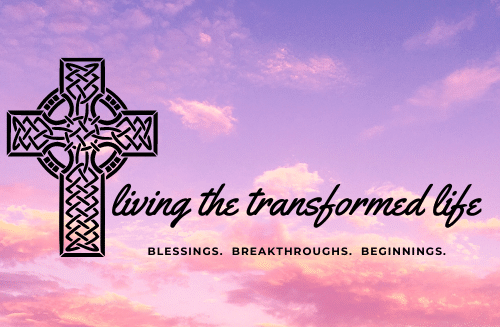“Bear with each other and forgive one another if any of you have a grievance against someone. Forgive as the Lord forgave you.” — Colossians 3:13
It’s hard when you’ve been hurt. And it’s hard to let go of that.
But holding onto a grudge is not the same as winning a battle. In fact, chances are that the other person has already processed the situation and moved on. What you’re doing by refusing to forgive is only hurting yourself. Someone once said that unforgiveness is like drinking poison and expecting the other person to die!
Think back on the last time someone hurt you. What did that feel like? Did you have a pit in your stomach? Did you have trouble sleeping? Were you distracted from other, more important things? What did you lose because you chose to stay angry at the other person? Unforgiveness isn’t good for you. Not only that, but the person you’re holding the grudge against probably doesn’t even remember what they did. They are not suffering because you’re upset. You are! You’re holding on to all that negativity and it’s slowly poisoning you. And it doesn’t stop at destroying your mental health. All this anger and resentment can and will make you physically sick. Your blood pressure goes up; your immune response goes down. You’re not sleeping well which has other health implications. And let’s not even talk about all the junk food you’re eating while in this state of stress.
Alternatively, by allowing yourself to surrender, you’re actually starting the healing process and actively allowing peace into your life. So let’s talk about why it’s important to let go and how to do it.
 Why You Shouldn’t Hold On
Why You Shouldn’t Hold On
Of course, grudges and negativity have obvious effects on your life socially. Even if you try to conceal your feelings, you will damage your relationship with the other person. Even if you don’t care about how it affects your relationship, you will find negativity creeping into your other relationships as well. You’ll be more defensive and find it harder to build good relationships with others.
From a mental health standpoint, holding onto grudges and negativity can have the following effects among many others:
- Increased stress
- Irritable mood and hostility
- Depression
- Low self-esteem
You may not realize it, but holding on to hurts also takes a toll on your physical health. One effect is that it increases the level of cortisol, the stress hormone, in your body. In survival situations, this hormone plays a pivotal role. However, too much of it or long-term exposure can damage your physical health. Some physical health effects of holding on include:
- High blood pressure
- Poor immune functioning
- Poor heart health
- Weight gain
- Muscle pain and/or weakness
- Arthritis
 How to Let Go
How to Let Go
Your mindset is the key to letting go. You have the power to make a conscious decision to forgive. Your emotions may not line up with your decision at first, but determine not to let your emotions rule you. Often forgiveness is a process, a continual releasing. It is a choice you are making to be free of the hurt. It probably won’t happen overnight, but stick with it and you will succeed. Your feelings will change as you determine daily to let go. (That said, for certain situations that created high levels of mental health concerns, trauma, etc., professional counseling may be needed Don’t hesitate to seek therapy if you need it.)
Here are some tips for letting go:
- Accept the situation for what it is. View it objectively and focus on the facts.
- Understand that surrendering is not allowing the other person to “win”. On the contrary, it is your own victory because it gives you a way to free yourself.
- Practice empathy. This is not to say that you condone the harmful actions of others. Rather, you try to understand their root cause.
- Avoid blaming and accept responsibility for any part you may have played.
- Do not hide from your emotions. Allow yourself to feel pain, anger, etc. without letting it define who you are. Use healthy coping skills to work through these emotions.
- Establish boundaries to avoid similar situations going forward.
- View this as a learning experience rather than a failure.
- Understand the harm of holding on and the benefits of letting go.
- Lean on your loved ones for support, or consider joining a support group for the particular issue.
- Make a conscious choice to forgive and repeat it to yourself.
- Visualize the situation in physical form and see yourself letting go of it. For example, many people choose to visualize themselves putting the situation in a box, sealing it, and throwing it away.
- Pray, and receive prayer to forgive and cope with the emotions.
- Remind yourself throughout the day that you have forgiven the offender.
 How Long Does It Take?
How Long Does It Take?
For every person, the healing process is different. Some people can let go and be perfectly fine within a week. Others may take years to fully process the situation, depending on the level of hurt. Some people may need outside help, such as a pastor or therapist. Throughout the journey, you must be patient with yourself and remember that there is a light at the end of the tunnel, even if it seems far away.
It’s important to work on this every day. Don’t view it as a distasteful chore, and do not allow yourself to give up or give in. You may never receive an apology from the other person, but remember that’s not the goal. The goal is to find personal release from the offense so you can find healing.
Forgiveness isn’t for the other person. It’s what sets you free and allows you to pursue happiness and be fulfilled in your own life.
Last but not least, remember that the Lord is there to help you through this. “Forgive as the Lord forgave you.”
Did this post help you? Leave a comment ~ share on social media ~ subscribe for more!
Related Posts:
“Why Is It So Hard To Change?”
“Getting Rid Of Emotional Baggage”


 Why You Shouldn’t Hold On
Why You Shouldn’t Hold On How to Let Go
How to Let Go How Long Does It Take?
How Long Does It Take?
Great article Tim!
Thanks, Barbra! 🙂